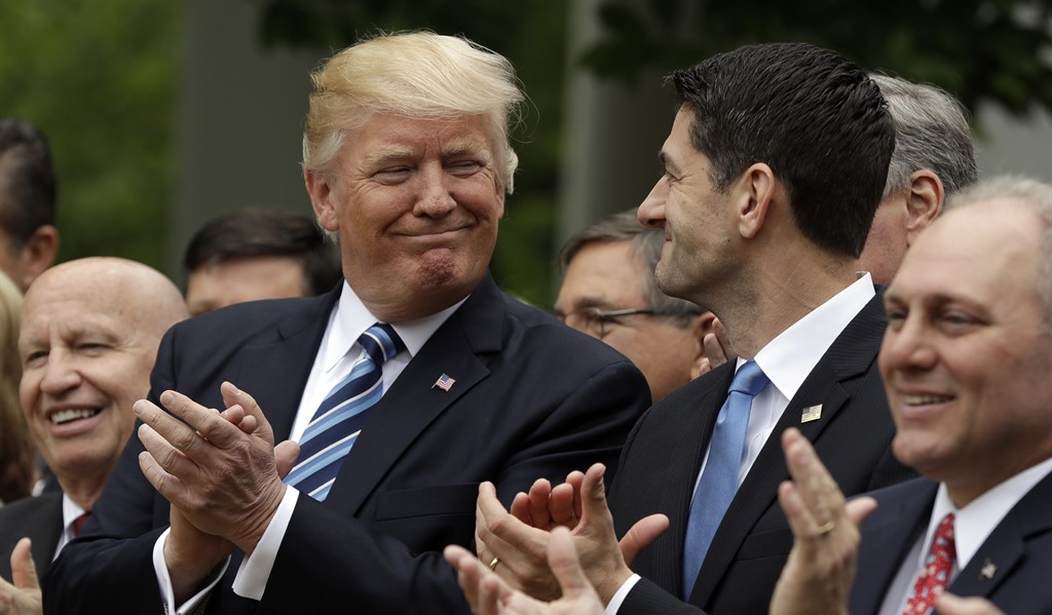The House of Representatives initiated a roll back of another Obama-era regulation, the 2010 Dodd Frank Act, one of the former president’s most substantial economic regulations, by passing the Financial CHOICE Act. House Republicans are taking tangible steps toward putting small businesses and the American taxpayer as priorities, after being burdened with regulation under Obama.
The goal of the Dodd-Frank Act was to regulate Wall Street and hold big banks accountable. While no Republican will argue with reasonable regulation on the financial sector, for the sake of accountability, Dodd-Frank did next-to-nothing to regulate the industry, and instead trampled on small banks and taxpayers. Under Dodd-Frank, big banks expanded and community banks have suffered. Local banks give the majority of small businesses their loans, and under Dodd-Frank, while big banks grew even bigger, the local banks and small businesses struggled.
One of the promises that led to the implementation of Dodd-Frank, which was the Obama Administration's answer to the 2008 financial crisis, was eliminating the “too big to fail” notion. Investors often view financial firms as “too big to fail,” and therefore funnel more money at a discounted interest rate, expecting that the federal government will bail out the firms if they do indeed fail. These bailouts are funded with taxpayer dollars the vast majority of the time. Dodd-Frank did not end TBTF. Instead, the policy implemented thousands of pages of burdensome regulation that the American small business market cannot handle, which, in turn, empowered big banks. The government continued to bail out the financial sector, courtesy of the American taxpayer, and therefore investors, in all their rationality, continued to put their eggs in the big bank basket. Thus, big banks grew and small, community banks had no opportunity to expand. Before the policy, big banks paid a much higher funding fee than smaller banks, and Dodd-Frank reversed that in 2010; under the law, small banks actually paid more for funding than big Wall Street banks. Proponents of Dodd-Frank claim to care for the average taxpayer and the small business owners in America, but implemented a policy encompassed by burdensome regulation that crushed small banks and businesses.
Recommended
The Financial CHOICE Act brings accountability back to the table on multiple fronts. The legislation erases the aspect of Dodd-Frank that allowed taxpayer dollars to flow to Wall Street bailouts. The policy creates transparency on Wall Street and puts a check on fraud with penalties in place on the industry. Dodd-Frank endorsed the Consumer Financial Protection Bureau, a government agency with no checks and no accountability. This agency was found unconstitutional by a D.C. Court of Appeals; the ruling against the government agency was due to issue with the bureaucratic structure of the agency, which does not allow for Congressional review. As an alternative, House Republicans proposed the Consumer Law Enforcement Agency, which puts the agency at bay of Congressional oversight, ensuring that protecting American taxpayers and small business are the priority.
The House Republicans took a giant leap for the American taxpayer and their own deregulatory agenda, even amidst immense criticism of Congress. Although the Financial CHOICE Act will likely face opposition and amendments in the Senate, Speaker of the House Paul Ryan is optimistic about the House’s progress in unraveling Obama-era regulations:
In 5 mos, the House has passed legislation dismantling #Obamacare, #DoddFrank, & 14 Obama-era regulations. And we're just getting started.
— Paul Ryan (@SpeakerRyan) June 8, 2017
The Republican majority in Congress, led by Speaker Ryan, can put one in the win column for deregulation. Hopefully, the slim Republican majority in the Senate can compromise with Democrats and put this bill on President Trump's desk.

























Join the conversation as a VIP Member